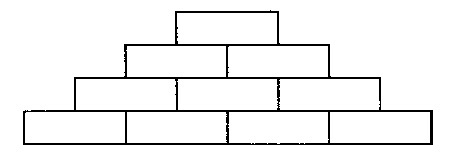SKET Seeks Part-Time Graders
|
Job Description: The BackgroundFor over a hundred years, an exceptional program in Hungary has developed innumerable mathematicians, engineers, and scientists. A program inspired by this, in the U.S., has been of great benefit to the trustees, who wish to sponsor its introduction in India. Our goal is very simple - to inculcate a love of mathematical thinking in children. The program is non-profit.
The core of the program is that students are encouraged to solve monthly mathematical problems that require ingenuity and thinking rather than rote technique. They submit solutions that are graded, and receive recognition at the end of the year for their efforts. While the problems are posed monthly, the solutions may be turned in at any time during the program. Initially all this happened by postal mail, but e-mail has now proved to be especially well suited for this. An unusual aspect of the program is that solutions are not distributed automatically. Rather, when a student makes a serious attempt at a solution, the grader provides sufficient feedback for the student to try again and take the solution forward. This can happen several times until the student reaches the final solution. This approach is especially effective in inculcating research skills early. Further, many problems lend themselves to multiple solutions, and the student is given extra credit for finding these. The role of the grader is therefore very critical to the success of the students and the program. Perhaps unique is the target age of the students. The program accepts students from the third through the eight grades, ages eight through fourteen. In fact, in our experience, the dramatic effects of the program are especially striking in the younger students. Again, it should be obvious that the quality of the grading is extremely important, particularly for younger children. Some Sample Problems
|
The RoleWe are seeking graders in India to grade submissions from students. Each month, the graders will first solve the problems themselves, check their solutions against the official ones, and understand the scoring criteria. It is important that the graders respond promptly to submissions from students, and provide helpful feedback as necessary. Since there are no deadlines for submission, often, the volume of submissions tends to increase towards the end, especially in April. All this will happen via e-mail.
We do expect to provide a nominal and fair compensation for your work. This is however a non-profit program, and we therefore expect this to be especially attractive for those to whom ideals are very important, and whose ideals coincide with our goals. The Ideal CandidateWe envisage two sets of individuals who might enjoy this role. First, a current M.S./Ph.D. candidate in mathematics or related fields in an Indian university, who intends to enter teaching as a career, and is passionate about spreading a love of mathematics among young children, would find this a great opportunity to gain relevant experience and contribute back to the subject. Exceptionally talented undergraduates may also find this rewarding.
Second, retired faculty in these areas looking to engage with young students and pass along their wisdom would find this fulfilling. How to Apply
|
|
|
